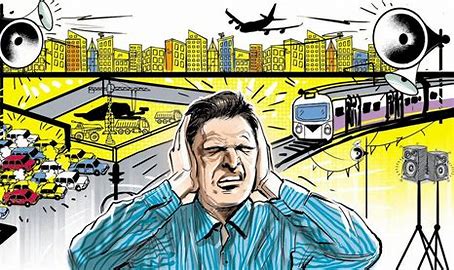Hearing loss can be gradual that you may not notice that you
can’t hear as well as you used to. But if you start to have difficulty hearing
what people are saying or need to turn up the volume on the TV, you may be affected
by noise-induced hearing loss.
The World Health Organization estimates that 466 million
people in the world with disabling hearing loss, and the number is rising.
It’s more that an inconvenience. Hearing loss can lead to
depression and low self-esteem, headaches, tense muscles and high blood
pressure, isolation and communication problems. It can also be a safety risk,
especially if you miss verbal instructions or warning signals at work.

We live in a noisy world
While one of the major causes of hearing loss is ageing,
another common cause is exposure to noise.
This can come from voluntary exposure such as noisy cars or
motorbikes, loud concerts or night clubs, or listening to loud music through
headphones.
You can also be exposed to too much noise when you’re at
work. Many people work in an environment where they are exposed to loud noise.
If you’re in manufacturing and construction, you’re more likely to be affected.
Excessive noise at work can lead to temporary or permanent
hearing loss, or tinnitus (ringing in the ears). If you work in a noisy
environment the damage to your hearing can be cumulative, even taking a number
of years.
The degree of hearing damage will depend on:
- the level/s of noise you’re exposed to;
- how often and how long you have been exposed to the noise, e.g workers who are exposed to hazardous noise on a daily basis at work are at a far greater risk of developing noise-induced hearing loss; and
- your susceptibility to noise.
What you can do
The most effective way to control noise is to eliminate it
completely or reduce it. But when this isn’t possible, it’s important to always
wear personal hearing protectors, such as ear-muffs or ear plugs, and make sure
you wear them correctly.

If you do suspect you have some degree of hearing loss, see
your doctor, who can organise for you to have a hearing test.
Quick noise level check
It’s not always obvious when noise levels are hazardous. A
quick test you can do is the ‘one metre rule’. If you need to raise your voice
to talk to someone about one metre away, you can assume the sound level is
likely to be hazardous to hearing.